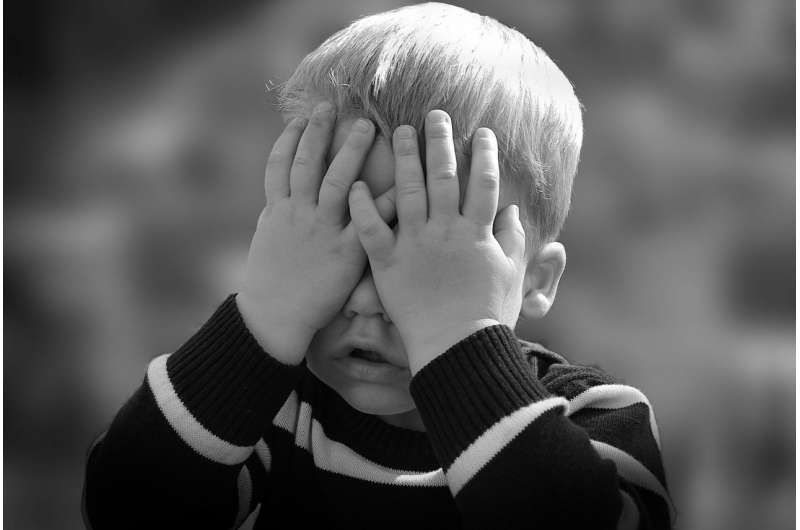Parents' mental illness linked to heightened risk of child injury

Parental mental illness is associated with increased risk of injuries among children up to 17 years of age and the risks peak during the first year of life, finds a study published by The BMJ today.
It is the largest analysis of its kind to date, and shows that the risk of injury was slightly higher for children exposed to a mother's (maternal) mental illness than to a father's (paternal). The risk was also higher for common mental disorders, such as depression and anxiety, compared to more serious mental conditions, such as schizophrenia and other psychotic disorders.
Previous studies have shown links between parental mental illness and the risk of injuries in offspring. However, most studies have focused on maternal exposure, common mental disorders and younger children, or were unable to separate risks by type of injuries.
To address this knowledge gap, researchers based in Sweden and the UK set out to determine the relationship between parental mental illness and the risk of injuries among offspring.
Their findings are based on 1,542,000 children born in Sweden between 1996 and 2011 to 893,334 mothers and 873,935 fathers.
Health care records were used to identify maternal or paternal mental illness, including psychosis, alcohol/drug misuse, mood disorders, anxiety and stress-related disorders, eating disorders and personality disorders.
Records were also used to identify childhood injuries, including transport injuries, falls, burns, drowning and suffocation, poisoning and violence at ages 0-1, 2-5, 6-9, 10-12, and 13-17 years, comparing children with parental mental illness and children without.
After taking account of potentially influential factors, the researchers found that children of parents with mental illness had higher rates of injuries compared to children of parents without mental illness (in ages 0-1, these children had an additional 2,088 injuries per 100,000 person-years).
This is calculated by following 100,000 people for 1 year.
Falls were the most common type of injury in all age groups, peaking at age 10-12 years, followed by burns and poisoning, which both peaked at age 0-1 years.
In contrast, rates of transport injuries and violence-related injury peaked in adolescence.
The rate of violence-related injury among children of parents with mental illness was 364 per 100,000 person-years compared with 152 per 100,000 person-years among children of parents without mental illness.
However, children of parents with mental illness also had another peak in violence-related injury during the first year of life (44 per 100,000 person-years).
Overall, excess injury rates were somewhat higher for common mental disorders, such as depression and anxiety, compared to more serious conditions, such as schizophrenia and other psychotic disorders.
Possible explanations for these findings are likely to be complex, say the authors, but they suggest that some parents with mental illness may find it harder to be vigilant or supervise children sufficiently, during the first years of life.
This is an observational study, so can't establish cause, and while the authors adjusted for a range of individual level socioeconomic factors, they acknowledge that these are unlikely to be an entirely accurate reflection of those families' environments.
However, they say their results show that parental mental illness is a risk factor for injuries among offspring, particularly during the first years of the child's life, and the risk is slightly higher for common mental disorders compared to more serious conditions.
"Efforts to increase access to parental support for mentally ill parents, as well as to recognise and treat perinatal mental morbidity in parents might prevent child injury," they conclude.
"This study adds timely weight to what we already know about the need for person centred and early interventions in mental health," says Antonis Kousoulis from the Mental Health Foundation in a linked editorial.
"If we are to implement measures and care that are more likely to be successful in these families, we need greater understanding and action at many levels," he adds.
To achieve sustainable change "we need to place the lived experience of citizens at the core of research, decisions, and interventions in mental health across sectors, disciplines, and countries," he concludes.
More information: Maternal and paternal mental illness and risk of injuries in children and adolescents: a nationwide register-based cohort study in Sweden, BMJ (2020). DOI: 10.1136/bmj.m853 , www.bmj.com/content/369/bmj.m853
Editorial: Injuries in the children of parents living with mental illness, www.bmj.com/content/369//bmj.m1317



















